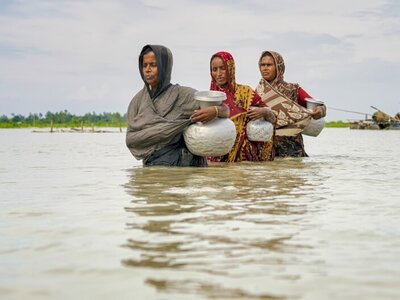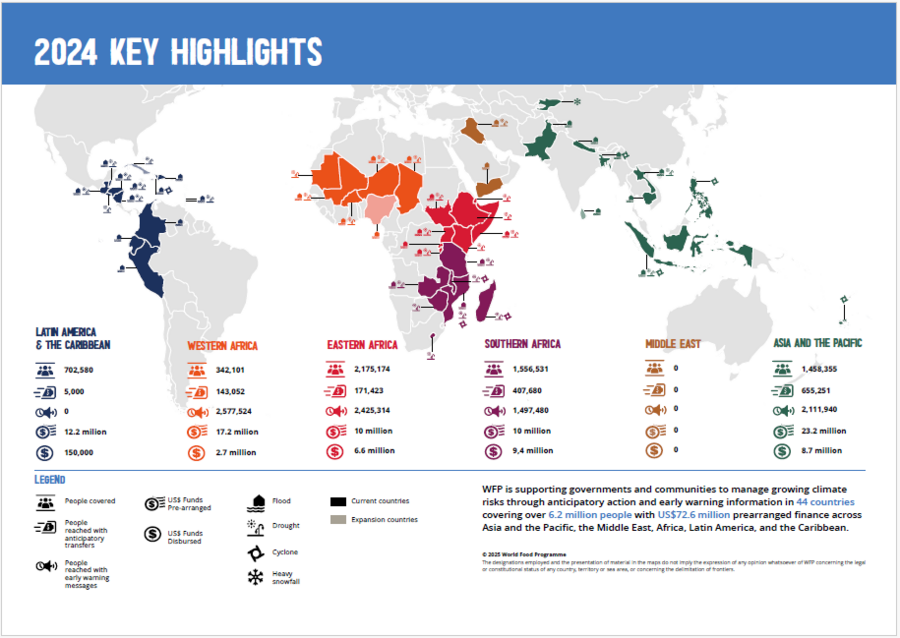Anticipatory Action for climate shocks
- 44 countries
- where WFP is developing Anticipatory Action programmes alongside governments and other key humanitarian partners
- More than 6.2 million
- people protected with anticipatory action in 2024
- US$72.6 million
- in prearranged financing available for anticipatory action activations in 2024
Climate extremes are a key driver of food insecurity. More frequent and intense floods, droughts and storms account for up to 90 percent of hazards worldwide. At the same time, the climate crisis is intersecting and compounding other drivers of hunger, including conflict and economic downturns. To successfully manage these interlocking problems and avert cascading humanitarian disasters, traditional humanitarian response systems need to evolve from crisis response to forward-looking risk management.
One of WFP's flagship programmes to manage climate-related risks is its Anticipatory Action (AA) for climate shocks programme, previously known as Forecast Based Financing (FbF). The AA programme enables the implementation and financing of actions before an extreme weather event has occurred. These anticipatory actions aim to prevent and mitigate – to the extent possible – the effects of extreme weather on the food security and nutrition of highly vulnerable people.
Launched in 2015, WFP’s AA portfolio now includes 44 countries in Asia and the Pacific, Africa, and Latin America and the Caribbean. WFP, together with national and local government partners, is supporting the development of early-warning systems and anticipatory actions for critical natural hazards such as droughts, floods and cyclones.
Success stories
-
Bangladesh
-
WFP has successfully implemented Anticipatory Action, working with the national government and humanitarian partners including the Red Crescent Movement. AA was implemented before severe monsoon floods that devastated vulnerable communities in the country's northeast in 2020. WFP is scaling up its AA programme and can currently reach 350,000 people five days before a forecasted flood, using mobile money and early warning messaging. AA in Bangladesh has shown a positive impact on families' food security; 36 percent fewer people went a day without eating throughout the floods, when they received assistance.
-
Philippines
-
Nepal
-
Mozambique
-
Dominican Republic
-
Ethiopia
-
Somalia
-
Zimbabwe








